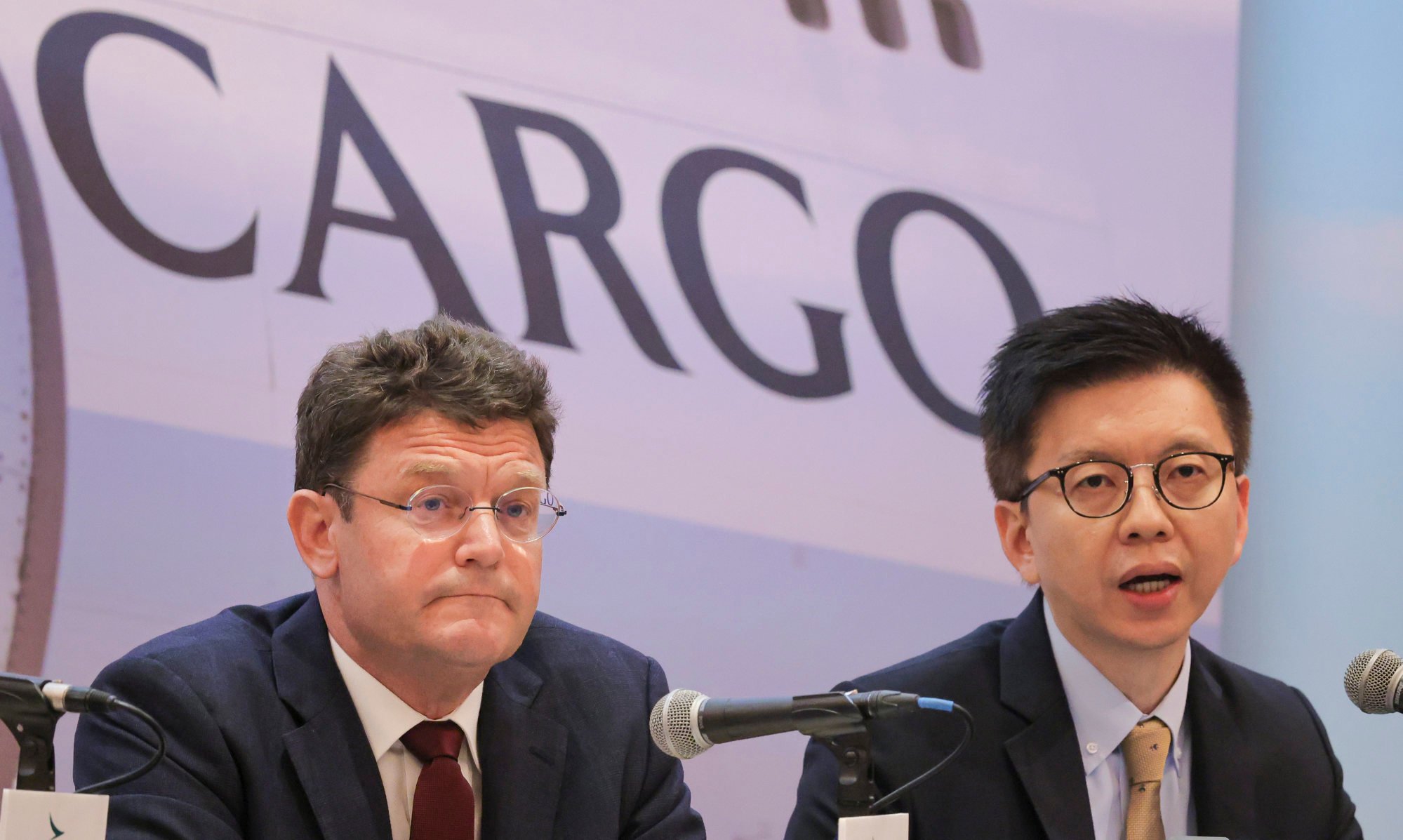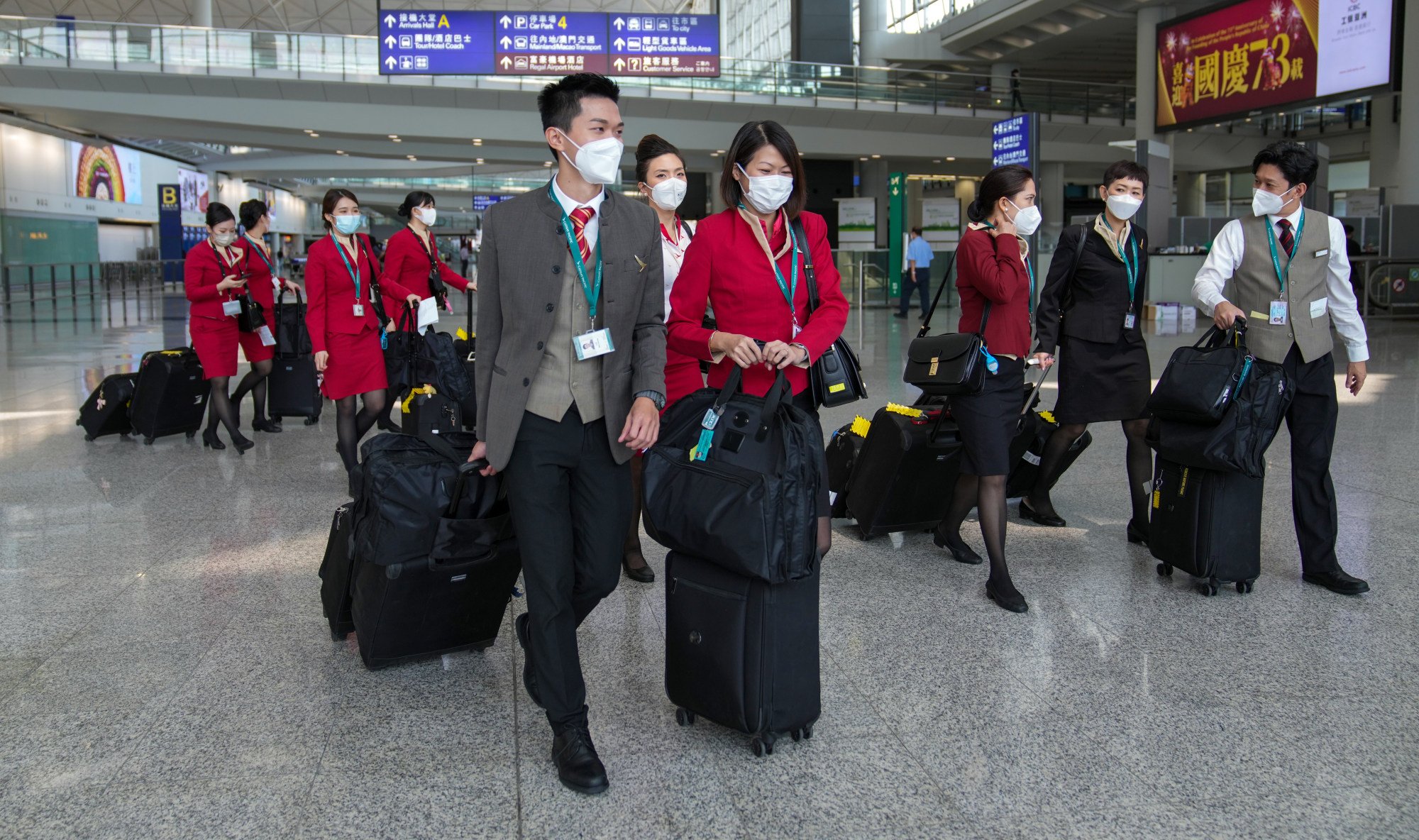
Hong Kong’s Cathay Pacific ticket prices won’t drop until ‘end of next year’ amid manpower crunch, CEO says while carrier plans cadet pilots at service lines
- Ronald Lam tells shareholders ‘aggressive’ target of 70 per cent pre-pandemic passenger capacity by year-end unlikely to increase
- Air fares have soared between 15 and 40 per cent compared with before the pandemic, according to travel agents
“We can see that supply is lower than demand and ticket rates in the market are still higher than pre-pandemic levels. We hope that as we continue to increase capacity … by the end of next year ticket prices can go back to normal,” Lam told shareholders.

The airline has set a target of 70 per cent of pre-pandemic passenger flight capacity by the end of the year and 100 per cent at the end of 2024.
Lam called that an “aggressive” goal that would not be increased further as the airline was facing manpower constraints, including for flight crew and ground staff at the airport and elsewhere.
“I don’t think we can raise our target for the end of this year,” Lam warned.
Cathay Pacific to require cadet pilots to work with customers at Hong Kong’s airport
Airfares have soared by between 15 and 40 per cent compared with pre-pandemic prices, according to travel agents.
Online searches by the Post for return economy-class tickets on Cathay between Hong Kong and London in June showed prices of about HK$12,000 (US$1,530). A return economy-class ticket to New York costs between HK$26,000 and HK$42,000. The fare for a similar trip to Tokyo’s Haneda airport is HK$5,000.
Flights at Cathay budget carrier HK Express ‘back to pre-Covid levels by Friday’
The airline’s cadet pilots will do two months of training at the airport as part of a new drive in June, including working at boarding gates and in the arrivals hall, according to a notice recently sent to staff and seen by the Post on Saturday.
In a statement, Cathay said the trial programme would seek to broaden the induction experience of its cadet pilot graduates, who would receive a basic monthly salary during their rotational duties.
“We will provide them with training and then assign them to various customer-facing touchpoints at the airport. Flying training will resume after completion of their induction activities,” the statement said.
Cathay is also grappling with a training backlog for pilots amid a global shortage of workers in the industry.
The Post reported in February that labour shortfalls plaguing ground-handling companies at the airport had delayed several airlines, including Australian carrier Qantas, from resuming or increasing flights to Hong Kong.

Senior lecturer Andrew Yuen Chi-lok of Chinese University’s Aviation Policy and Research Centre noted that labour shortages were affecting “almost all sections” of the industry, and capacity constraints caused by the crunch had increased operating costs.
“It will lead to cost pass-through to consumers in which they unavoidably face higher prices. Thus, Hong Kong may be less attractive to both airlines and passengers as an aviation hub, and the competitiveness will be diminished,” Yuen warned.
While airlines could implement measures to increase staff numbers, such as offering higher salaries and better packages, the effects were likely to be limited, given the city’s tight labour market, he said.
Shukor Yusof, founder of aviation advisory firm Endau Analytics, said he believed ticket prices would gradually start to decline towards the end of the year.
“Hong Kong’s recovery depends on how quickly the mainland recuperates from its three-year-long self-imposed Covid hibernation,” he said, referring to the country’s isolation under tough pandemic curbs since early 2020.
The Cathay group plans to reach 70 per cent by the close of the year, covering 80 destinations. It aims for full-service restoration by the end of 2024.
Cathay posted a loss of HK$6.5 billion (US$829 million) for 2022, 18.5 per cent higher than the year before. But the company’s core airline operations rebounded to a HK$2.26 billion profit in the last six months of 2022.
The airline earlier said it planned to hire 3,000 frontline staff this year, while aiming to recruit 400 cadets, making up the bulk of the 700 new pilots it sought overall.
Hong Kong’s Cathay Pacific warns of HK$7 billion in ballooning losses
Lam earlier pledged to start repaying HK$1.5 billion in deferred share dividends it owed the government on HK$19.5 billion in preference shares this year, as part of a HK$39 billion recapitalisation package in 2020.
Asked by a shareholder when Cathay would dish out dividends, Lam said the airline was still in the preliminary stage of rebuilding but hoped to distribute them “as soon as possible”.

